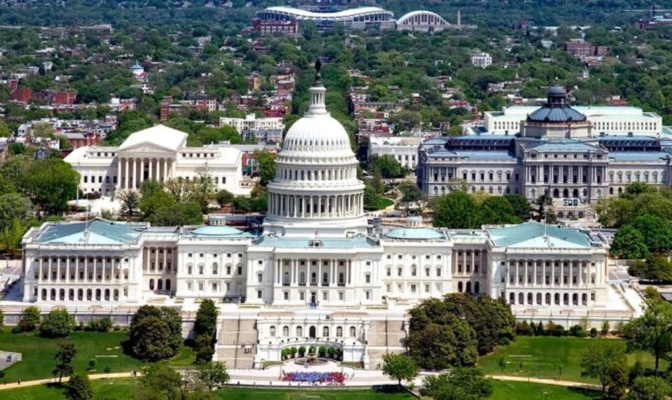The SEC falls behind in the climate race
Share on LinkedIn

The Securities and Exchange Commission (SEC) has released its long-awaited climate rule for publicly traded companies in the US. The rule, which was meant to be finalised last year, will require companies to disclose their climate-related risks as well as their greenhouse gas emissions, as underpinned by the Greenhouse Gas protocol. SEC Commissioners voted 3-2 in favour of the rule last week, making it the country’s first federal climate related mandate.
Despite this though, the final rule cut out a major piece of the 2022 proposal, which would have forced businesses to disclose their Scope 3 emissions – those that originate from their supply chain or outside of their direct operations. For many companies, Scope 3 emissions are the largest portion of a company’s overall emissions profile. SEC Chair Gary Gensler justified this decision based on public feedback, assuring that the final rule “will enhance the disclosures that investors have been relying on to make their investment decision.”
The SEC also limited disclosure of Scope 1 (direct) and 2 (indirect) emissions to companies where it is material. “Material” in this sense relies on the Supreme Court’s definition which involves determining whether the company considers the information significant to investors and if it significantly changes the available information. This will impact around 40% of the companies that are registered with the SEC.
These limited requirements, when compared to the original 2022 proposal, are a big win for corporates and Republications who lobbied against it. However, as reported by the Financial Times last week, these groups remain unsatisfied with ten US states starting a petition to vacate the rule, stating that the SEC had overstepped its statutory authority. And this won’t be the only legal challenge. Other challengers, including Commissioner Hester Peirce, have argued that the ruling breaks the First Amendment by forcing companies to engage in “compelled speech”.
Meanwhile, Democrats and environmentalists are equally unhappy with the watered-down version of the rule that places the US behind other major markets including Europe. Research by Ceres in 2022 showed that 97% of institutional investors supported the required disclosure of Scope 3 emissions. Dropping Scope 3 despite substantial investor support represents a shortcoming for the SEC, whose primary mandate is protecting investors.
Placing it into wider context
Although the SEC chose to weaken its final climate rule, many companies will be required to gather and report this information in other markets.
From next year, almost 50,000 companies will be required to disclose their climate-related risks and opportunities under the Corporate Sustainability Reporting Directive (CSRD) in Europe. Included in this directive is Scope 3 emissions reporting.
Last year, the state of California passed SB253 into law, requiring around 5,400 global businesses to report their Scope 1, 2 and 3 emissions. This will come into force in 2026, using 2025 data, and for Scope 3 emissions, 2027, using 2026 data.
Many countries are also choosing to adopt the ISSB standards. Under IFRS 2, companies will be required to disclose all three scopes, in accordance with the Greenhouse Gas Protocol.
As a result, whilst the SEC may have chosen to take a step backward in its final rule, many global companies will be impacted by other regions. US investors can therefore turn to these markets for information that is missing under the SEC’s rule.

How and when?
Companies will be required to disclose their climate-related risks, including their emissions, in their annual 10-K or 20-F reports. The final rule also requires registrants to file an attestation report with their Scope 1 and 2 emissions, to improve the accuracy and reliability of the metrics. Three years along the line, companies will also have to obtain “limited” assurance of their reporting.
In terms of timing, there will be a phase-in for mandatory reporting across different registrants. The first round of companies will have to disclose in 2026, using data from 2025. These companies should therefore use 2024 to put these required systems in place.
What are people saying about it:
Allison Herren Lee, former commissioner and acting chair at the SEC: “The people with the capital still want [Scope 3 emissions data]; we can’t ignore that.”
Kristina Wyatt, Deputy General Counsel and Chief Sustainability Officer at Persefoni: “The uncertainty is over. The SEC has recognized that climate risk is financial risk. Companies will need to report their footprint in a standardized, rigorous, and globally aligned way. While the SEC missed a chance to lead by requiring Scope 3, other regulations and market expectations already demand it.”
Mindy Lubber, President of Ceres: “Although this final rule does not go far enough compared to international standards and the SEC’s 2022 proposal, it will start to meet the demand for transparency that investors and companies have long sought.”






